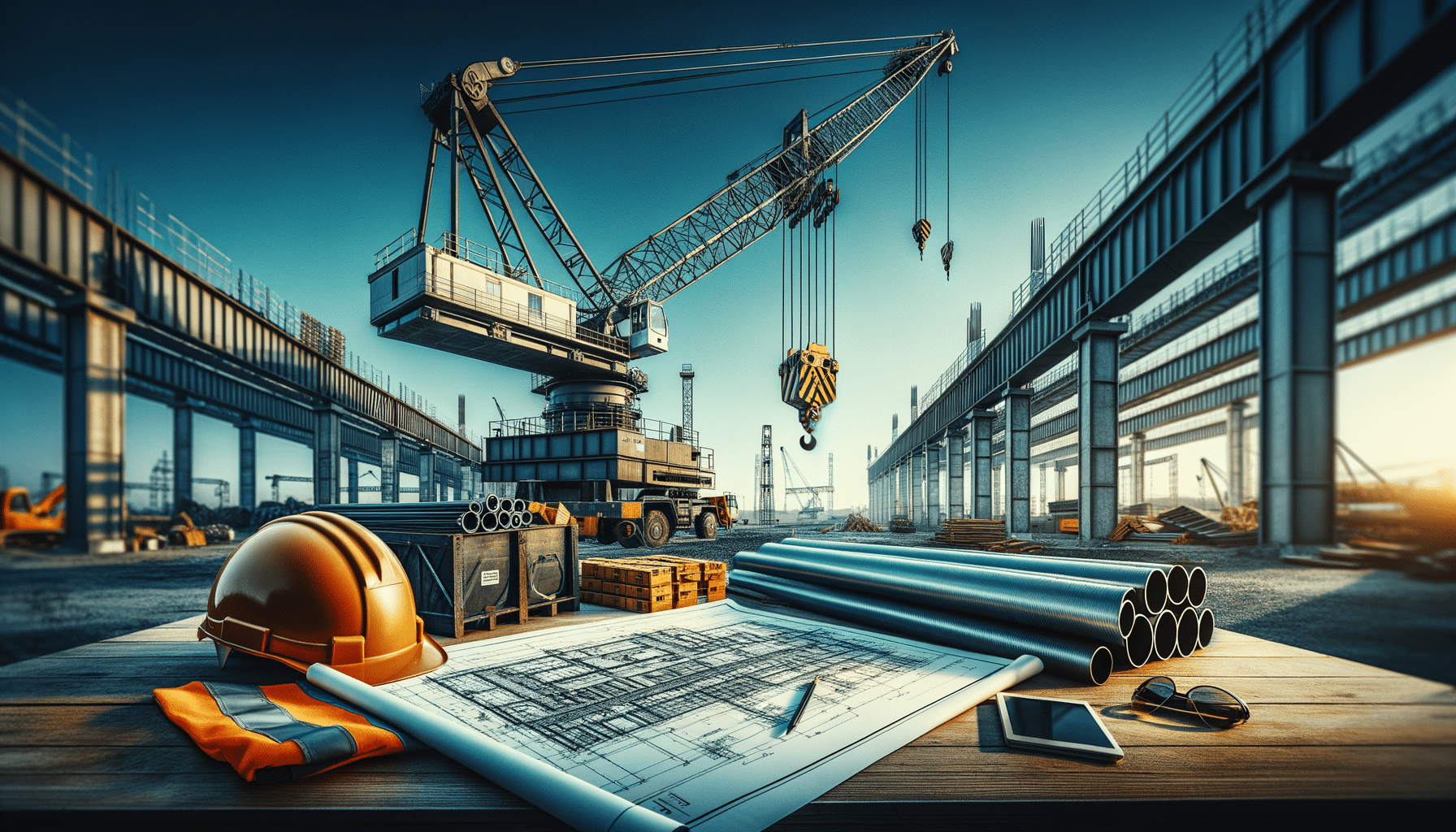
Crane Jobs: Precision and Skill in High-Stakes Careers
Introduction to Crane Jobs
Crane jobs are a vital component of the construction and logistics industries. These roles demand a high level of precision, safety expertise, and technical skill, as operators handle heavy loads and complex rigging operations. The importance of crane jobs cannot be overstated, as they are crucial for the successful completion of large-scale projects, including skyscrapers, bridges, and industrial installations.
Crane operators are responsible for maneuvering cranes to lift, move, and position loads efficiently and safely. This requires not only technical proficiency but also a keen understanding of engineering principles and safety regulations. The demand for skilled crane operators is steadily increasing, driven by the growth in infrastructure development and the need for efficient logistics solutions.
Types of Cranes and Their Applications
Crane jobs encompass a variety of crane types, each designed for specific applications. Understanding the different types of cranes is essential for operators to select the right equipment for the task at hand.
Common types of cranes include:
- Mobile Cranes: These versatile cranes are mounted on wheeled vehicles, allowing them to be easily transported to different sites. They are widely used in construction and for loading and unloading freight.
- Tower Cranes: Often seen at construction sites for tall buildings, tower cranes offer excellent height and lifting capacity. They are essential for constructing skyscrapers and other high-rise structures.
- Overhead Cranes: Typically found in industrial settings, these cranes operate on a fixed track and are used for moving heavy loads within a facility.
- Loader Cranes: Mounted on trucks, loader cranes are used for loading and unloading goods. They are commonly seen in the logistics and transport sectors.
Each type of crane has unique features and capabilities, making them suitable for specific tasks. Operators must be trained to handle the particular crane they operate, ensuring safety and efficiency on the job.
Training and Certification for Crane Operators
Becoming a crane operator requires rigorous training and certification. This ensures that operators have the necessary skills and knowledge to perform their duties safely and effectively. Training programs typically cover a range of topics, including crane operation, safety protocols, and maintenance procedures.
Certification is often mandatory, with requirements varying by region. It typically involves both theoretical and practical assessments. Certification bodies aim to uphold high standards of safety and competence within the industry. Operators must demonstrate their ability to handle cranes under various conditions and adhere to safety guidelines.
Ongoing education is also crucial, as technology and safety standards continue to evolve. Many operators participate in refresher courses and advanced training to stay updated with the latest industry developments.
Safety Considerations in Crane Operations
Safety is paramount in crane operations, given the potential risks associated with lifting heavy loads. Operators must adhere to strict safety protocols to prevent accidents and ensure the well-being of all personnel on site.
Key safety considerations include:
- Load Limits: Operators must be aware of the crane’s load capacity and avoid exceeding it to prevent structural failure.
- Site Assessment: A thorough assessment of the site conditions, including ground stability and weather, is essential before commencing operations.
- Communication: Clear communication between the operator and ground personnel is crucial for coordinating movements and ensuring safety.
- Regular Inspections: Routine inspections and maintenance of the crane are necessary to identify and rectify any potential issues.
By implementing these safety measures, operators can minimize risks and maintain a safe working environment.
The Future of Crane Jobs
The future of crane jobs is promising, with advancements in technology and increasing demand for infrastructure development. Automation and digitalization are transforming the industry, introducing innovations such as remote-controlled cranes and advanced safety systems.
These technological advancements offer numerous benefits, including improved precision, enhanced safety, and increased efficiency. However, they also require operators to adapt and acquire new skills to work with cutting-edge equipment.
As the industry evolves, crane operators will continue to play a crucial role in shaping the skylines of cities and supporting the logistics that keep economies moving. The demand for skilled operators is expected to grow, offering numerous opportunities for those entering the field.


